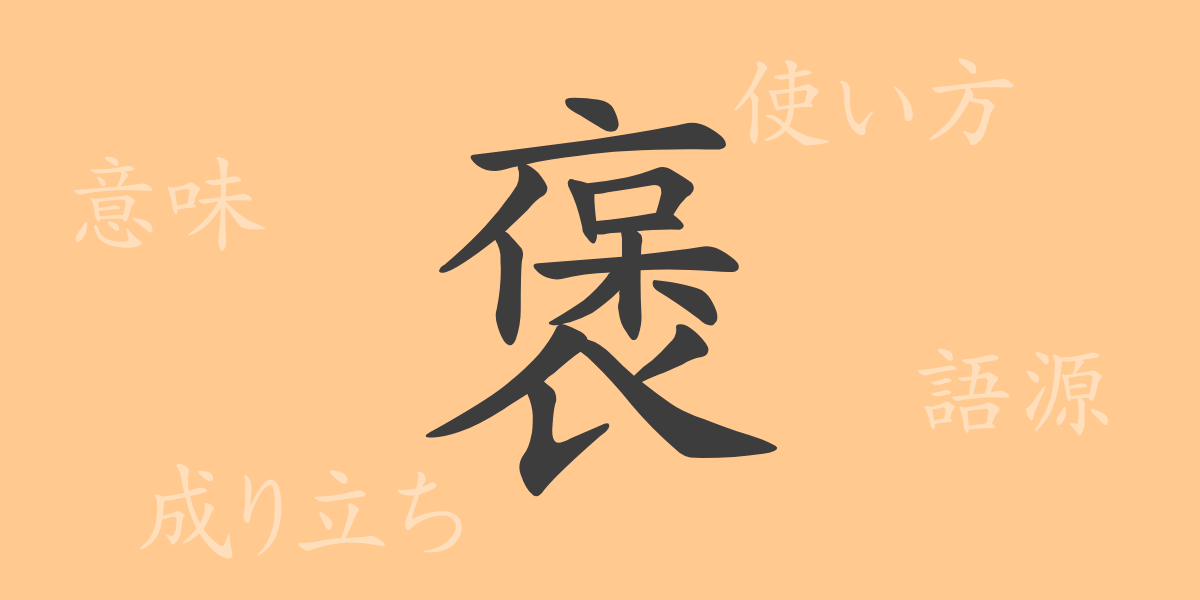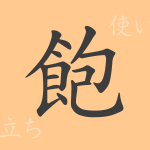In Japanese culture, words transcend being mere tools for communication and become instruments for expressing spiritual richness. Among these, kanji (漢字) stand out with their profound shape and meaning. This time, we shine a spotlight on one of Japan’s commonly used kanji, “褒” (ほう, hou), and delve into its origins and contemporary usage.
Origin of 褒 (ほう, hou)
The kanji “褒” (ほう, hou) is derived from the character related to clothing, “衣” (ころも, koromo), which originally signified adorning clothes beautifully. Over time, it evolved to mean “to praise.” In ancient Chinese literature, it appeared as a term used to commend virtues and achievements. This background strongly reflects the nuances of recognizing beauty and value in “褒” (ほう, hou).
Meaning and Usage of 褒 (ほう, hou)
“褒” (ほう, hou) means “to praise” or “to commend.” This kanji is used to express positive opinions when evaluating someone’s actions or achievements. For example, it is often used in the form “褒める” (ほめる, homeru) to praise someone for their excellent behavior. Additionally, it can refer to giving words of praise or tangible rewards.
Reading, Stroke Count, and Radical of 褒 (ほう, hou)
The kanji “褒” (ほう, hou) has several characteristics:
- Reading: The on’yomi (音読み) is “ホウ” (ほう, hou), and the kun’yomi (訓読み) is “ほ・める” (ほめる, homeru).
- Stroke count: “褒” (ほう, hou) has 12 strokes.
- Radical: The radical is 衣 (ころもへん, koromohen).
Idioms, Proverbs, and Phrases Using 褒 (ほう, hou)
Idioms, proverbs, and phrases containing “褒” (ほう, hou) are frequently used in Japanese. For example, “褒美を与える” (ほうびをあたえる, houbi wo ataeru) means to give a reward to someone for special achievements or actions. “褒め殺し” (ほめごろし, homegoroshi) is an idiom that describes excessively praising someone to make them complacent or to hide one’s true intentions. Additionally, the proverb “褒めるに似たり嫌うに似たり” (ほめるににたりきらうににたり, homeru ni nitari kirau ni nitari) implies that while it may seem like praise, it actually contains the opposite meaning.
Summary of 褒 (ほう, hou)
The kanji “褒” (ほう, hou) is an important character used to commend good deeds and virtues. Understanding its origins and meaning can deepen your appreciation for the rich expressive power of the Japanese language. Moreover, praising others plays a crucial role in communication and is key to maintaining good relationships. We hope this article helps you re-recognize the usage and value of “褒” (ほう, hou) and aids you in using the power of words more effectively.

























